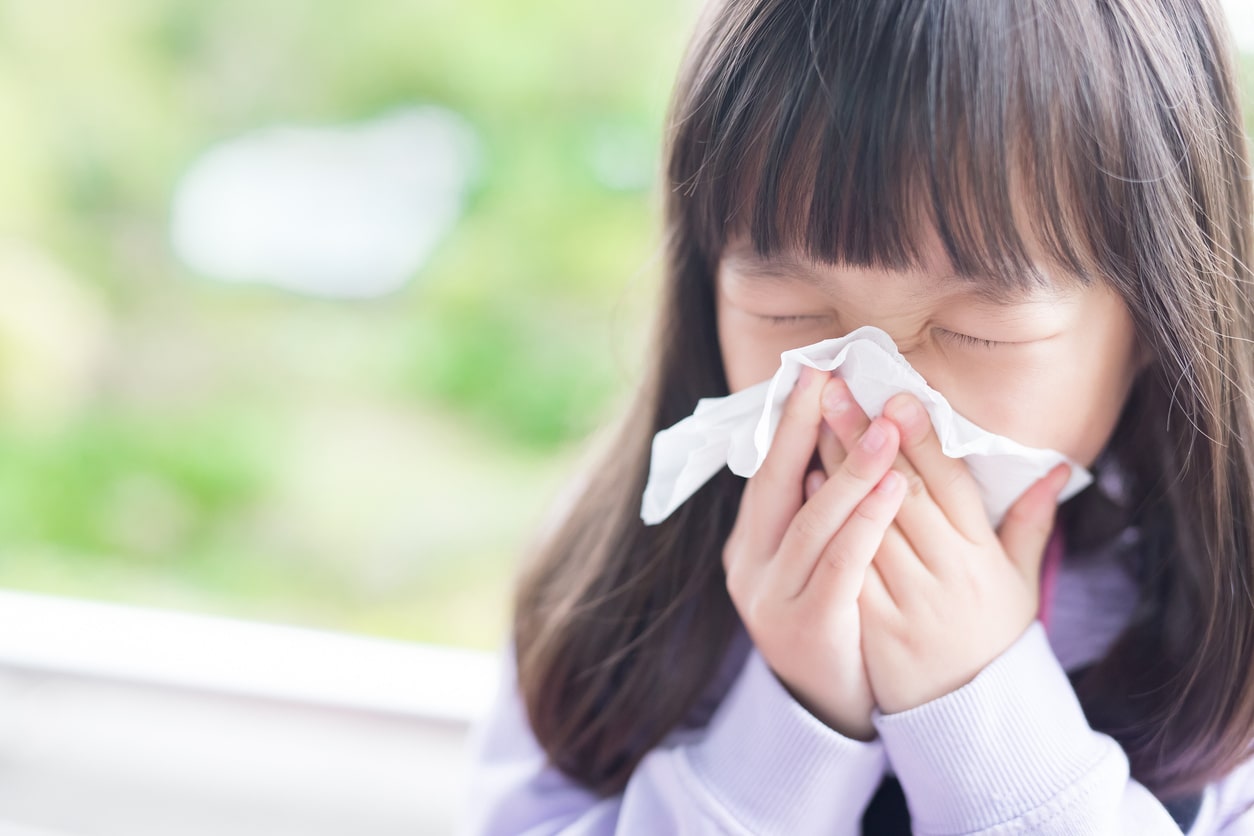Allergic rhinitis affects up to 40% of children but isn’t often diagnosed. Seasonal allergies can also be difficult for children. If you’ve noticed your child struggling with allergy symptoms after a visit to Marion Davis Park, you may want to consider seeing a medical professional.
Allergy Causes

The most common cause of seasonal allergies is plant pollen. Indoor allergens can also cause symptoms but aren’t likely to cause seasonal allergies. Understanding the allergy seasons can help protect your child from seasonal allergic rhinitis. During these times, you can avoid the allergens altogether or prepare by taking medication.
Common seasonal allergy triggers:
- Grass pollen (spring and summer)
- Leaf mold (fall)
- Ragweed pollen (late summer, early fall)
- Sunny, windy days (can promote high pollen levels)
After returning indoors, you can rinse off to remove pollen from skin and hair and help minimize symptoms.
Allergy Symptoms
Seasonal allergy symptoms vary in type and severity by child. They can sometimes be mistaken for a cold.
The most common symptoms are:
- Sneezing, itchy nose
- Sinus pressure
- Runny nose or nasal blockage
- Itchy or puffy eyes
- Rashes or hives
Allergy Management
One of the simplest ways to manage allergic rhinitis symptoms is to understand the triggers and avoid the allergens. Medications such as antihistamines, decongestants and epinephrine and treatment options for mild to severe allergies can be found over the counter or can be prescribed. There are other treatment options to manage symptoms as well.
Treatment options:
- Allergy immunotherapy (shots, drops or tablets) is used to build up the body’s tolerance to allergens by injecting or consuming them in small doses over time.
- Wearing face masks outdoors may help a child avoid pollen.
- Nasal saline solutions can be used with the assistance of an adult to clear mucus from the nose.
- Warm compresses or a wet washcloth may ease congestion and discomfort.
- Hygiene and good cleaning habits, such as regular showers or baths and keeping bedding clean, can help reduce allergens in the home and help with allergy symptoms.
It’s a good idea to contact a doctor if your child is experiencing allergy symptoms, and it may be beneficial to consult an allergist.
If your child is experiencing seasonal allergies, schedule an appointment at Carolina Pines ENT.
